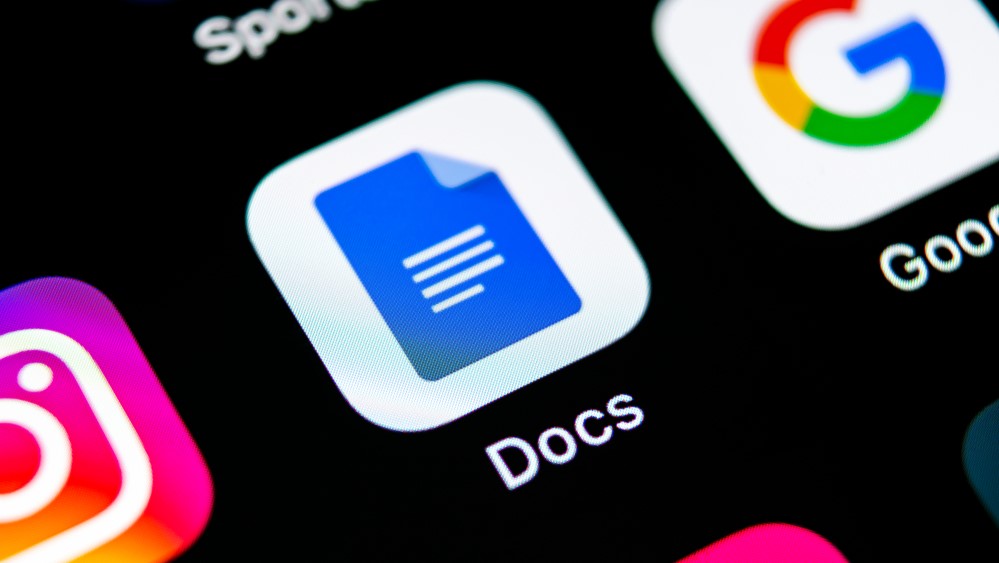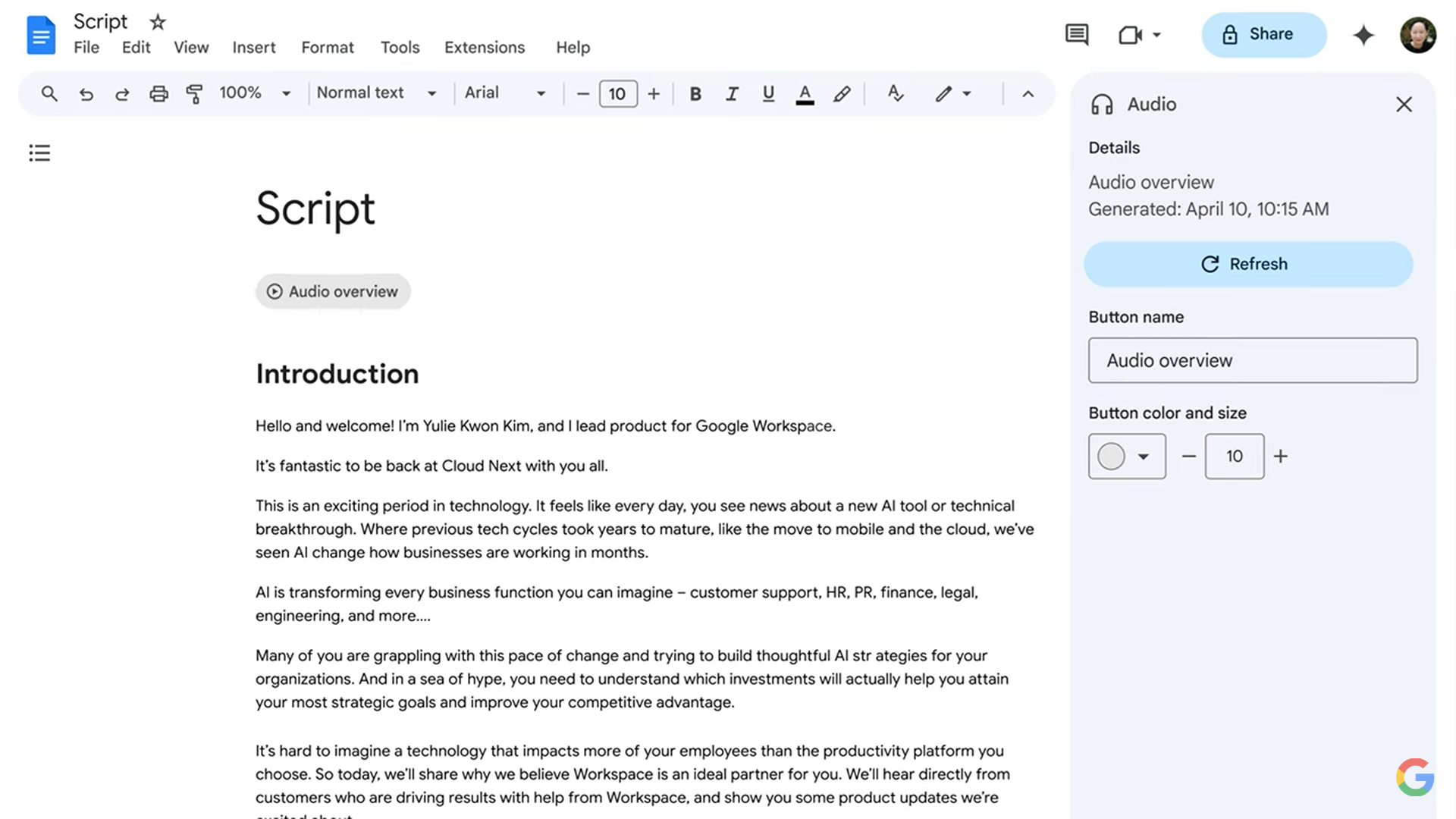Google Docs' new AI voice will help you catch mistakes
Or a nice podcast-style summary

- Google Docs is introducing a new Audio Overviews feature
- Audio Overviews can read your documents aloud or summarize them like a podcast
- The tool aims to help users improve their writing and enable multitasking
Reading your writing out loud is one of the best ways to discover any mistakes or awkwardness that could use some editing. But as the writer, you might have a blind spot for your own typos or be too close to what you wrote to note where it needs some rewriting (or outright cutting).
So, if you don't always have a friend on hand to help, Google will start jumping in with a new Audio Overview feature for Google Docs.
Audio Overviews are already a part of Google's NotebookLM platform. Now, Google is sending that “natural-sounding” narration to Google Docs to read your documents aloud.
The goal is for the user to hear Audio Overviews read a document back to you, uncovering every mistyped word and stilted phrase you didn't hear when you wrote it.

Google is also including a second option besides just getting an AI recitation. You'll be able to hear what the company calls a “podcast-style overview” of the text, meaning just a collection of the highlights instead of every single word. For texts that are more than a dozen pages long and full of research, that could be a big help.
Alas, this isn't the kind of podcast-style review available on NotebookLM, which will generate an actual conversation between two AI voices discussing everything you've uploaded.
Reciting AI
Google claims the voices will be indistinguishable from an actual human, and if it's the same AI voice model employed by NotebookLM, that's not far from the truth. Of course, mispronouncing words, especially proper nouns they haven't heard before, is a very human foible when reading out loud. Still, that might not matter much if it also catches your actual errors.
Get daily insight, inspiration and deals in your inbox
Sign up for breaking news, reviews, opinion, top tech deals, and more.
The feature also has a major accessibility benefit as AI voices reading text have been a boon for people with impaired sight or other reading difficulties. An upgraded, more natural-sounding voice to read Google Docs would only make text more accessible. Plus, it could help anyone who just has a lot going on. You could 'read' a long report while driving, folding laundry, or doing anything else that keeps your eyes busy.
This isn't a world-shaking feature, but it's the kind of quality-of-life improvement to a widely used product, Google Docs, that AI is uniquely suited to provide. It's hard to argue that using AI to enhance productivity software to make it more adaptive is unnecessary.
Anything to streamline how you polish your writing will be a draw. Not that Google is unique in this pursuit, though, as both Microsoft and Apple have been experimenting with similar AI augmentation of their word processors.
Even so, Google Docs is the go-to for millions of people, students, and professionals alike, and this move makes the product that much easier to stick with.
You might also like

Eric Hal Schwartz is a freelance writer for TechRadar with more than 15 years of experience covering the intersection of the world and technology. For the last five years, he served as head writer for Voicebot.ai and was on the leading edge of reporting on generative AI and large language models. He's since become an expert on the products of generative AI models, such as OpenAI’s ChatGPT, Anthropic’s Claude, Google Gemini, and every other synthetic media tool. His experience runs the gamut of media, including print, digital, broadcast, and live events. Now, he's continuing to tell the stories people want and need to hear about the rapidly evolving AI space and its impact on their lives. Eric is based in New York City.
You must confirm your public display name before commenting
Please logout and then login again, you will then be prompted to enter your display name.
